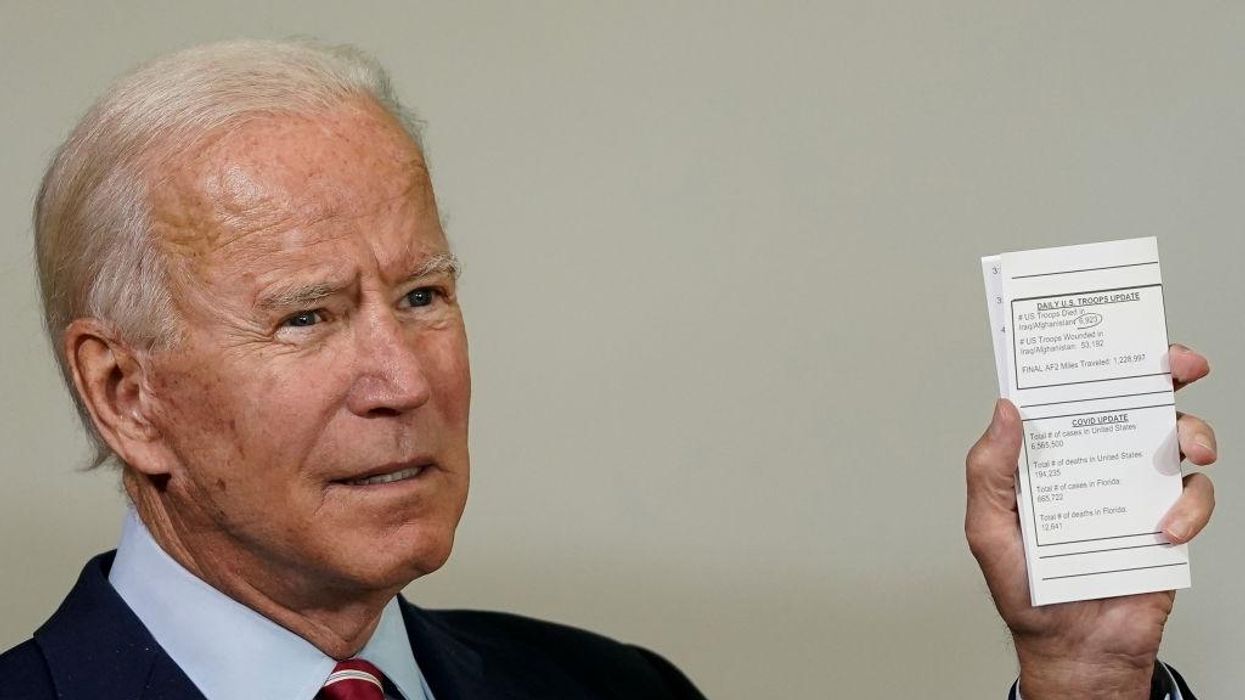
Drew Angerer/Getty Images

President Joe Biden and Iraqi Prime Minister Mustafa al-Kadhimi will announce on Monday an agreement to end the U.S. military's combat mission in Iraq, a senior Biden administration official told reporters.
The two leaders are meeting at the White House in the afternoon and will release a "broad communiqué" that will establish a timetable for the U.S. military to withdraw from combat by the end of the year. U.S. forces will remain in Iraq in a training and advisory role, according to a transcript of the call released by White House.
"As this evolution continues, and as we formally end the combat mission and make clear that there are no American forces with a combat role in the country, Iraq has requested, and we very much agree, that they need continued training; support with logistics, intelligence, advisory capacity building — all of which will continue," the official said.
The announcement follows the Biden administration's decision to withdraw from Afghanistan, ending the 20-year war that began after the Sept. 11, 2001, terrorist attacks. The war in Iraq began in 2003, when President George W. Bush invaded Iraq after linking Saddam Hussein to the terrorist group al-Qaeda, which was responsible for 9/11.
Nearly two decades later, there are about 2,500 troops still deployed in Iraq and the U.S. military has trained 250,000 Iraqi Security Forces and Kurdish fighters to combat the remaining forces of the Islamic State. These fighters are "battle tested" and "have proven very capable in protecting their country," according to the official.
"At the same time, ISIS remains a threat," the official acknowledged, citing a roadside bomb attack in Baghdad that killed at least 30 people and wounded dozens more last week. ISIS claimed responsibility for the attack.
The Biden administration appears to want to avoid repeating the mistakes of the Obama administration's premature 2011 withdrawal from Iraq, which left a weak Iraqi government unprepared for the threat of ISIS. By 2014, ISIS had captured several major cities including Mosul, and the Obama administration returned troops to Iraq at the request of the Iraqi government.
"Some of these battles in Mosul were extremely costly on the Iraqi side. And so, nobody ever wants to see something like that again," the official said. "And we're committed to making sure, as we always said from the beginning, nobody is going to declare 'mission accomplished.'"
Since ISIS was routed on the battlefield in 2017, Iraqi lawmakers have demanded that the U.S. withdraw its combat presence in their country. The U.S. and Iraq have met for three strategic talks to discuss the future of U.S. military intervention in Iraq, the first beginning under the Trump administration and the last being held in April when the Biden administration agreed to shift the mission of U.S. troops to training and advisory roles.
Though a timetable will now be set for when that transition is completed, the official declined to say how many U.S. troops would withdraw from Iraq, if any.
"The goal is the enduring defeat of ISIS. We recognize you have to keep pressure on these networks as they seek to reconstitute, but the role for U.S. forces and coalition forces can very much recede, you know, deep into the background where we are training, advising, sharing intelligence, helping with logistics," the official explained. "And that's about where we are now."